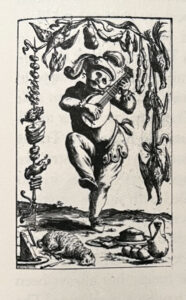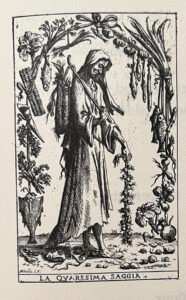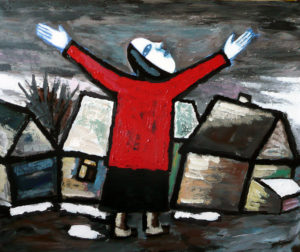We are firmly on the approach to spring. The Carnevale of Venice, with all its passion and opera and high baroque fashion and masks, began in earnest over two weeks ago. The celebrations come to a close tonight with Martedi Grasso: Fat Tuesday… Mardi Gras. Stateside, the celebrations culminate tonight in New Orleans and in Key West and in Mobile, Alabama, the places where Mardi Gras is an old friend. For most of us Americans, though, the day doesn’t get a second thought as to its specialness, although many of us will be celebrating by making pancakes for supper. Shrove Tuesday is the proper name for this final day before the start of Lent, and we eat pancakes tonight to use up the last of the eggs, the last of the milk, the last of the butter. In Germany, and for the same reasons, it is Faschnacht, or Fasnacht, a night for homemade doughnuts. And in Sweden and Finland, you’ll find semlor on the table: buns scented with cardamom and filled with almond paste and cream. Our friends at Johan’s Joe, the Swedish coffeehouse in West Palm Beach, tell us that originally semlor were made only for Fat Tuesday, or Fettisdagen, but nowadays Swedes bake semlor for all the Tuesdays of Lent. Traditions are living things; they do evolve.
Lent these days is no big sacrifice. Some folks give up sweets for Lent, or give up booze, or give up gossiping. All the Church asks is that we be more prayerful and more penitent and give up meat on Fridays. As a kid, for me this meant a season of fish sticks for supper on Fridays, or lentil soup without the sausage. As a kid who would eat anything put in front of him, I didn’t mind, and Lent never felt like a sacrifice. In ages past, though, this abstinence from meat was not just on Fridays but for all the forty days of Lent, and it was not just meat but also eggs, cheese, milk, and lard. Lent was forty days of beans and pulses and vegetables and fish.
It’s been said, though, that even without this fast enforced by the Church, Lent would have had to have been invented, out of necessity. It was not all that long ago that food was a much more locally produced commodity, and by late winter, food stores would be at their lowest supply. If the populace was going to make it through the winter to the first fresh foods of spring, some abstinence was going to be necessary –– whether by order of the Church or by the simple fact that by late winter, there’s only so much food to go around.
The contrast between the Carnival season and the Lenten season could not be more pronounced. The season of excess typically began with Christmas and its Twelve Days and resumed again with Carnevale (and in some places, where Carnevale would begin right after Epiphany, just continued on without a break). In Italy, the symbol for Carnevale is a plump and jovial fellow, dancing and having a grand old time, well dressed, plume in cap, and often wearing a ring of sausages around his neck. He is called il Carnevale Pazzo: Crazy Carnival. He rules the roost all through the Carnival season and through this culminating night of celebration on Fat Tuesday. Come Wednesday morning, though, there is a distinct shift and a new figure takes center stage: she is la Quaresima Saggia: Wise Lent. She is thin and gaunt and somber. Head cast down, pensive, she is dressed in rags and carries a rope of garlic and dried cod. Her reign begins on Ash Wednesday, and she treads barefoot upon the discarded masks of Carnevale. She is known, too, as la Vecchia: the old woman.
Seth and I, we will eat our pancakes tonight with festivity and in good spirit, and in the morning, if we have it in us, we will approach that altar to have ashes smeared on our foreheads with the spoken reminder: Remember man that thou are dust and to dust you shall return. We are made of the stuff of this earth and we shall return to it. But the stuff of this earth is made of the stuff of the stars, too, and that is something to ponder. If nothing else, these forty days that follow tonight’s pancake supper will hopefully remind us that life is short, and we would do well to live the time we have with compassion and kindness for our fellow human beings, and to love each day, and, as we like to say here, to live the ceremony of each day, too.




